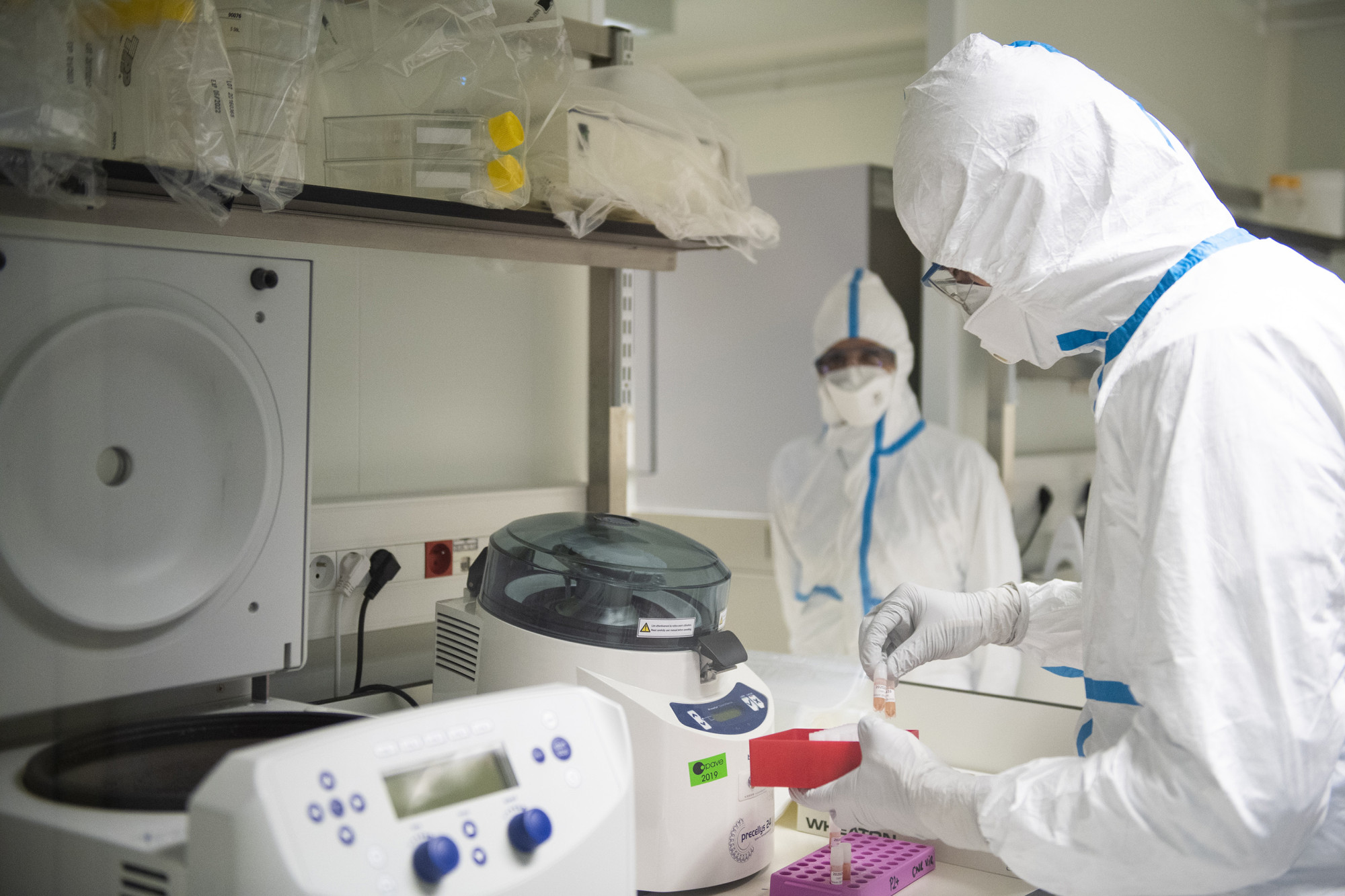By October 2020, more than 400 Pasteur researchers had been involved in 89 research projects (of which 56 in Institut Pasteur Paris) and 50 Publications. Among the key achievements of this Task Force, are:
- 3 tests - one of them on the market -,
- insights on the disease, including : the effects of age, appropriate control and containment measures,better understanding of disease progression, super-spreaders and tracing and prevalence; mapping of virus-host interactions to help explain the interferon, anosmia and ageusia responses; study of pulmonary invasion, genetic and autoimmune factors;
- targeting of molecules and cellular proteins to screen viral replication, with a view to control strategies;
- vaccine : phase 1 clinical trial of the measles vaccine derivative, pre-clinical data for an intranasal vaccine and exploration of a DNA vaccination model ;
- analysis of more than 300O SARS-CoV-2 genomes.
Below are some of the Task Force latest achievements
Operation and Reliability of RT-PCR tests in the detection of SARS-CoV-2
The National Reference Center (CNR) for Respiratory Viruses at the Institut Pasteur is responsible for monitoring cases of respiratory infections and for epidemic surveillance. When a new virus emerges, like the novel coronavirus in China, the CNR's task is to do everything it can to detect the novel pathogen. In response to the crisis caused by COVID-19, the CNR at the Institut Pasteur developed a diagnostic test to detect the SARS-CoV-2 virus (known at the time as 2019-nCoV) in suspected cases of infection.
Assessing infection rates in population
Comparing the total number of deaths across countries may provide a misleading representation of the underlying level of transmission of SARS-CoV-2, the virus that causes COVID-19, because of large differences in reported COVID-19 death rates in elderly populations in different countries.
The research conducted by the Pasteur Institut, the University of Cambridge and the CNRS, published in Nature, highlights the limitations to using total number of deaths to compare the level of circulation of the virus in different countries, and that the number of Covid-19 deaths reported in those under 65 is probably a much more reliable indicator.
Read more in the Pasteur Institute Press Release (2020.11.03)
Find out more about the Pasteur Institute Task Force's work.
Dec 2020 | Photo : Institut Pasteur - François Gardy

